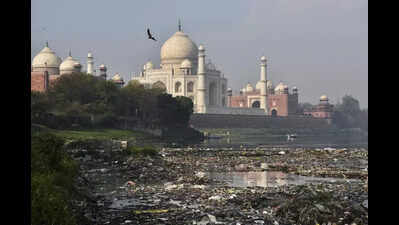Trending
SC seeks revised budget for Taj zone tree census after FRI excludes areas
Agra: Supreme Court (SC) on Tuesday directed the Forest Research Institute (FRI) to re-examine its proposed budget for conducting a tree census in the Taj Trapezium Zone (TTZ). The directive came after the Dehradun-based institute submitted an affidavit stating that the exercise would cost Rs 7.7 crore and take six years to complete.
A bench of Justices Abhay S Oka and Ujjal Bhuyan said the duration was "too long" and noted a "lot of overlap" with FRI's ongoing work in Delhi. The institute is also conducting Delhi's first tree census on the SC's order in three phases over three and a half years.
"We are of the view that FRI needs to have a relook at the budget proposed as infrastructure which may be utilised for tree survey in Delhi may be used for the tree survey in TTZ area. Therefore, we direct the FRI to submit a fresh budget and timelines within four weeks," the court said.
Last month, while hearing a plea on the environmental protection of Taj Mahal and its surroundings, SC had directed the TTZ Authority to appoint FRI for a tree census in the region. The court noted that effective implementation of the UP Protection of Trees Act, 1976, would be impossible without data on existing trees.
In its affidavit, FRI clarified that the census would exclude areas not covered under the UP Protection of Trees Act—such as reserved and protected forests, forest lands under the Indian Forest Act, 1927, cantonment areas, and govt gardens or land. It also stated that since the 1976 Act is "not in Rajasthan," areas like Bharatpur would be excluded.
Speaking to TOI, Sharad Gupta, an Agra-based environmentalist who is a petitioner in the case, said, "If significant TTZ areas remain uncounted, this exercise becomes futile. SC has also instructed FRI to review its logistics expenditure. Utilising infrastructure used during the tree census in Delhi for TTZ could substantially reduce overall costs."
End of Article
FOLLOW US ON SOCIAL MEDIA








